Not only did Annie Malone introduce hair care products that were far gentler than the existing options for Black women, but she also opened up a chain of cosmetology schools to teach women how to care for Black hair.
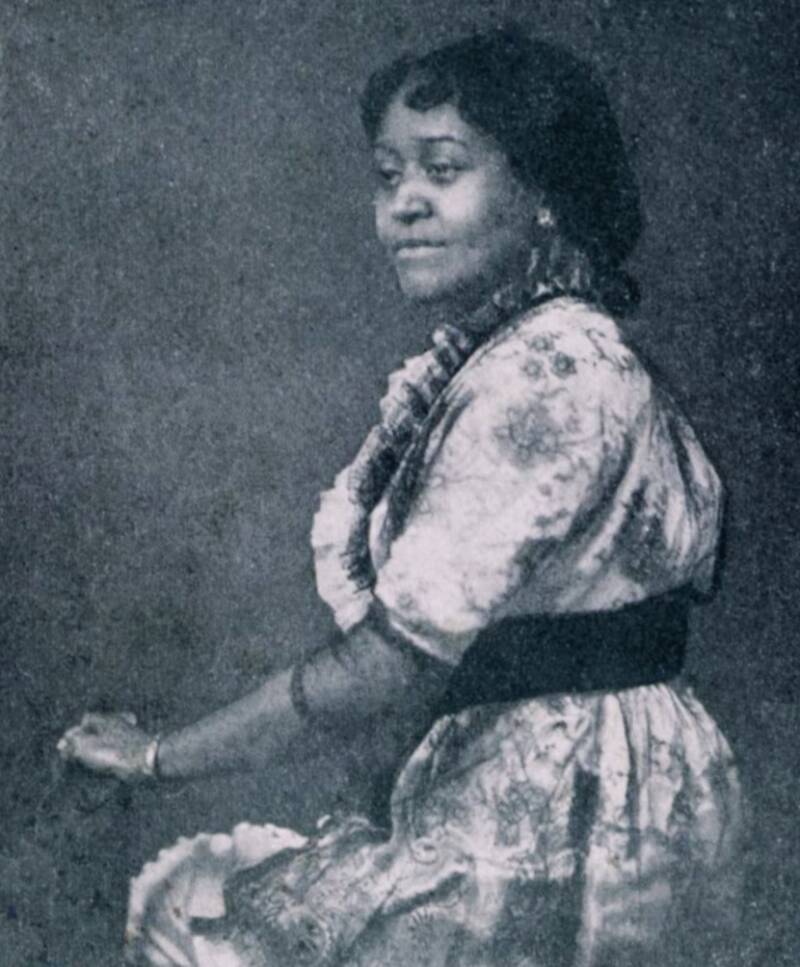
Smithsonian National Museum of African American History and CultureFrom humble beginnings, Annie Malone became one of the first female self-made millionaires in American history.
Madam C.J. Walker, a 20th century entrepreneur, is widely considered to be the first woman to become a self-made millionaire in the United States. Walker made her fortune by selling by selling beauty products specifically designed for Black women. But she learned everything she knew from another Black female entrepreneur: Annie Turnbo Malone.
Malone had made her own fortune by designing beauty products for Black women, specifically to help promote scalp health and hair growth. In 1903, Walker became Malone’s client — and then started her own line of products.
But while C.J. Walker is remembered today, Annie Malone has been all but forgotten. This is her story.
The Early Life Of Annie Turnbo Malone
Born on August 9, 1869 in Metropolis, Illinois, to formerly enslaved parents, Annie Turnbo Malone had a chaotic early life. Orphaned at a young age and largely raised by a sister, Malone was sickly as a child and often missed school. Though the State Historical Society of Missouri reports that she never graduated high school, Malone showed an aptitude for chemistry.
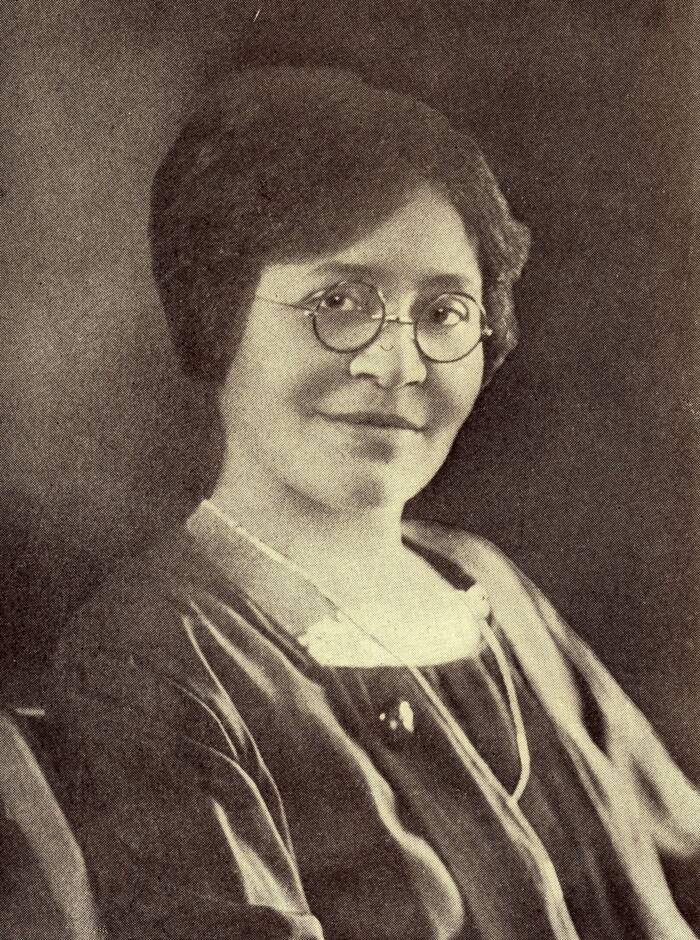
Missouri Historical SocietyAnnie Malone set out to make products specifically for Black women.
Malone was also fascinated with something else besides chemistry: beauty. Specifically, she was interested in Black beauty.
The beauty standards of late 19th-century America were largely geared toward white women. Black women had few options when it came to hair care, and often used heavy oils, grease, or even lye to straighten their hair. But these products could damage their scalps or strip their hair of moisture.
Annie Turnbo Malone set out to use both her background in chemistry, and what she had learned from an herbalist aunt, to design a product that would help Black women with their scalp and hair health. She called her invention the “Wonderful Hair Grower.”
Then, at the turn of the 20th century, Malone decided to try to seek a customer base for her product.
Annie Malone Expands Her Business
After spending most of her life in Illinois, Annie Malone decided to move across the Mississippi River in 1902 to St. Louis, Missouri. Not only did the city have one of the largest Black populations in the United States, but the city was also gearing up to host the 1904 World’s Fair. It was a thriving, growing place, and Malone hoped to find customers for her product there.
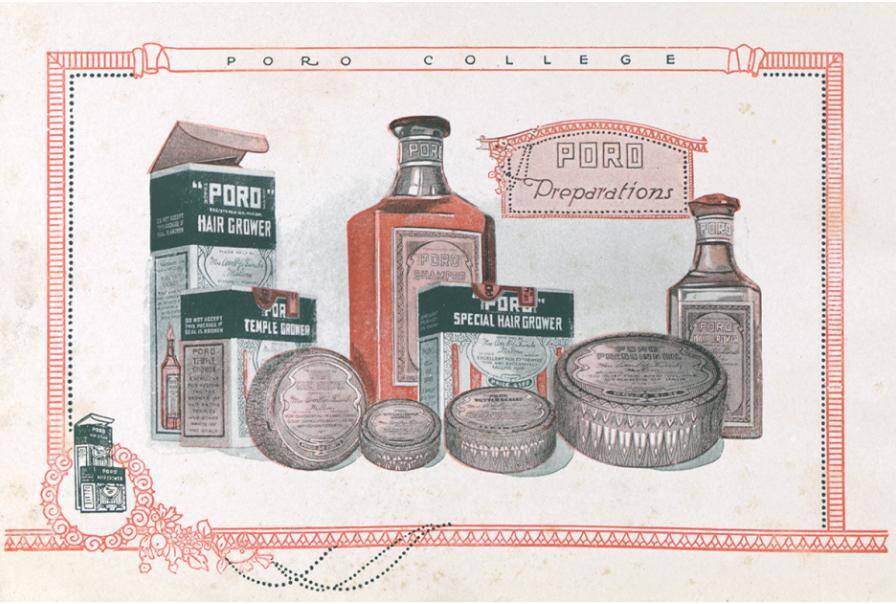
Smithsonian National Museum of African American History and CultureAn advertisement showcasing the “Poro” products developed by Annie Malone.
Malone started by going door-to-door with her hair products, a strategy that proved so successful that she was soon able to open up a store on Market Street. There, Malone emphasized the importance of scalp health. She told her customers that “clean scalps mean clean bodies” and helped them to restore healthy scalps and hair.
Women walked into Malone’s shop and asked for help with all kinds of hair problems. Some struggled with dandruff or psoriasis. Others wanted to grow their hair longer. Malone would diagnose their issue and recommend a treatment. One of her clients was C.J. Walker, who then went by “Sarah.”
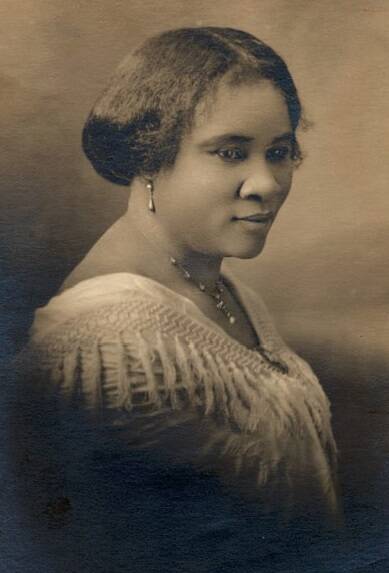
Smithsonian National Museum of African American History and CultureMadame C.J. Walker transformed herself from a laundress to a mogul after meeting Annie Malone.
But though Malone’s business was growing, she also faced challenges on several different fronts. She had gotten married soon after moving to St. Louis, but divorced her husband in 1907 on the grounds that he was trying to control her business. Meanwhile, Malone was infuriated to learn that Walker had moved to Colorado, where she had started to sell a product similar to Malone’s called “Madam C. J. Walker’s Wonderful Hair Grower.”
Despite these setbacks, Annie Malone continued to grow her empire.
The Creation Of Poro College
In 1906, Annie Malone copyrighted her beauty products as the “Poro Method,” named for the West African idea of maintaining and enhancing one’s body. She expanded her products to include lipstick, face powders in varying shades, and cold cream. And in 1918, she opened one of the first cosmetology schools in the United States, called Poro College.
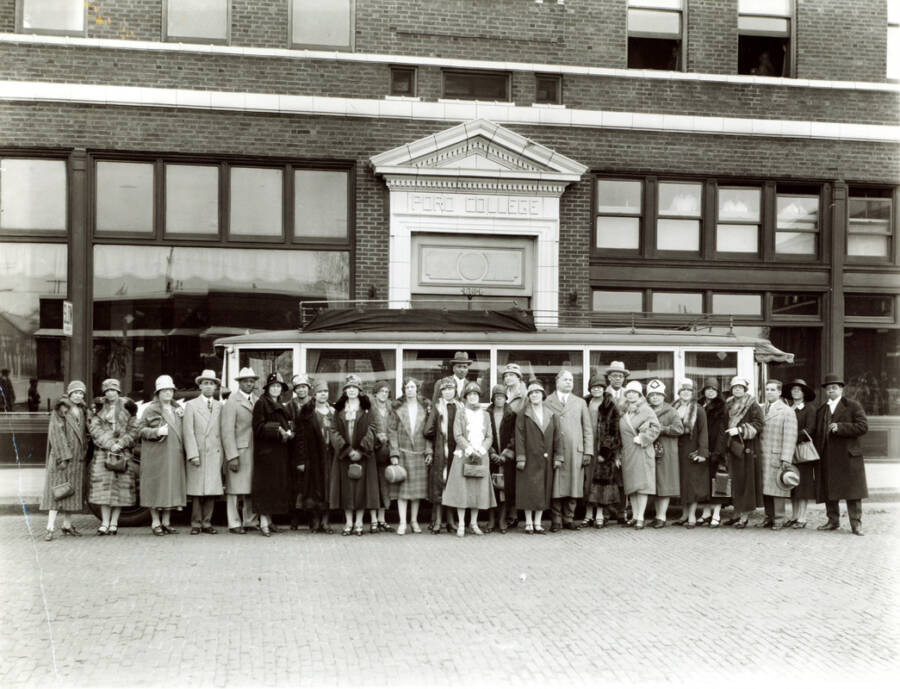
Missouri Historical SocietyPoro College educated tens of thousands of Black Americans, primarily women.
Poro College was the first beauty school to focus on Black hair care. Its students learned about scalp cleaning, hair growth, and other issues. They studied hair preparations and helped clients with specific goals such as growing hair or treating psoriasis. What’s more, Poro College also offered employment opportunities for thousands of Black Americans who went on to sell Malone’s products as “Poro agents.”
Malone also used her college to support other Black entrepreneurs. The National Negro Business League, which was excluded elsewhere because of segregation, hosted meetings at Poro College.
By the 1920s, Annie Malone was a millionaire — and one of the most successful Black women of her day.
The Forgotten Legacy Of One Of America’s First Black Female Millionaires
Life for Annie Malone Turnbo wasn’t always easy after she made her fortune. Though her business thrived in the 1920s, the Great Depression hit Malone hard. And after she divorced her second husband in the 1920s, Malone had to give him $200,000.
But by the time she died in 1957, Annie Malone had left behind a powerful legacy. Her Poro College trained tens of thousands of people — including Chuck Berry, who attended the school with his sister — and offered employment opportunities to Black Americans. The college expanded throughout Malone’s life, and had 30 branches by the time she died.
Annie Malone also used her fortune to give back to the Black community. Malone’s donations funded Black orphanages and Howard University.
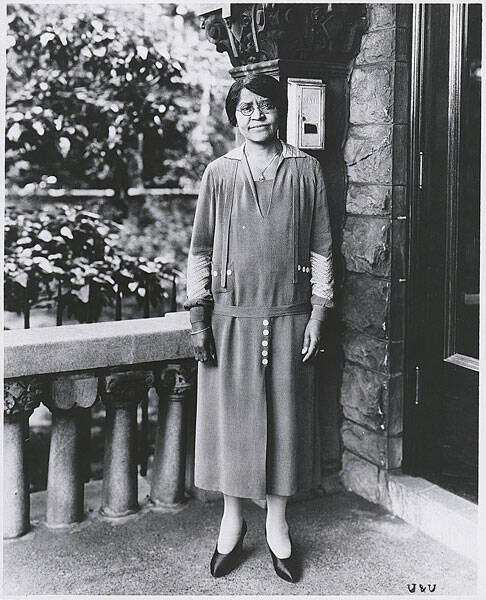
Missouri History MuseumWhile her wealth dwindled over the course of her life, Annie Malone still left behind an important legacy.
So why isn’t Annie Malone remembered today?
One reason may be the rise and fall of her fortune. While C.J. Walker died suddenly in 1919 with her million-dollar fortune entact, Annie Malone’s wealth dwindled in the 20th century. Not only did she lose a huge chunk of her wealth to her second husband, but Malone was also sued by the government multiple times for tax delinquencies. She had once been worth an estimated $14 million, but had just $100,000 to her name when she died.
But Annie Turnbo Malone certainly deserves to be remembered. Bright, ambitious, and generous, Malone changed the lives of incalculable Black Americans. Not only did her hair products help them to take better care of their hair and scalp, but she also offered education and employment opportunities, and generously shared her fortune when she had it.
That said, there’s at least one place that’s never forgotten Annie Malone. In St. Louis, where she made her fortune, the city throws an Annie Malone parade every year to raise money for children’s’ charities.
After reading about Annie Malone, one of the first self-made Black female millionaires in the United States, discover the stories of other Black inventors. Or, go inside the forgotten story of Ann Lowe, the Black designer who created Jackie Kennedy’s iconic wedding dress.





